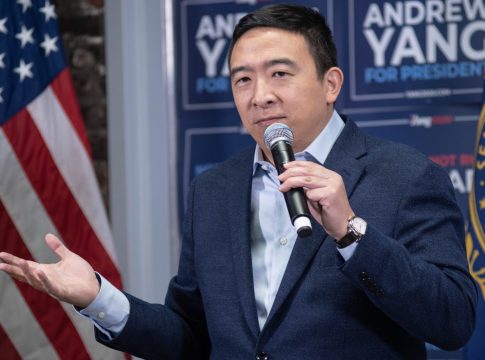Andrew Yang Sounds Alarm on Rapid AI Job Displacement
In a recent appearance on CNBC’s Squawk Box, former presidential candidate Andrew Yang shared troubling insights about the accelerating impact of artificial intelligence on the American job market. Yang, who initially raised concerns about AI’s potential to disrupt employment back in 2019, now asserts that changes are occurring even more swiftly than he anticipated.
The Quickening Pace of AI Implementation
Yang pointed out that AI is already making significant inroads in sectors such as tech and design. For instance, he cited conversations with CEOs who are replacing thousands of customer service roles and entire design teams with automated solutions. “Departments are shrinking, and soon you might find just one or two employees left to manage the AI systems,” he noted. This fundamental shift threatens job security in traditionally stable fields, particularly in computer science.
A Bleak Outlook for Entry-Level Positions
Yang raised concerns for future generations, highlighting that early-career opportunities are dwindling. Jobs often viewed as stepping stones for young professionals—such as those in customer service or design—are being disproportionately affected by automation. This trend poses a risk to the career development of recent graduates and workers in roles that face increasing automation.
Regulatory Gaps Amidst Breakneck Progress
While Yang acknowledges that some industry leaders, like Amazon CEO Andy Jassy, have started to recognize these shifts, he believes that legislative measures are lagging significantly behind. “Our political class is very far from addressing these issues,” Yang remarked. He emphasized the necessity for comprehensive federal regulations to guide the responsible deployment of AI technology.
Without a unified national policy, Yang fears we could enter a "Wild West" scenario where corporate interests dominate, driven by competition and geopolitical pressures. He proposed that regulations should not only aim to safeguard workers but also align AI’s benefits with societal well-being.
Universal Basic Income as a Potential Solution
Yang has long championed the idea of Universal Basic Income (UBI) as a remedy for the economic turmoil that disruptive technologies can cause. When asked whether UBI might mitigate job losses due to AI, he confidently stated, “To me, that is the answer.” He highlighted that proactive government intervention is crucial in ensuring that vulnerable populations—especially young workers and low-income earners—do not find themselves abandoned in a rapidly changing job landscape.
Conclusion: A Call to Action
Andrew Yang’s warnings serve as a clarion call for immediate action as AI technology reshapes the workforce. While the advancements in AI promise greater efficiency and productivity, they also threaten to undermine traditional employment structures. The need for robust regulations and innovative solutions like UBI has never been more urgent. As Yang aptly concluded, without adequate measures, many workers might soon be left asking, “Where did my job go?”

Writes about personal finance, side hustles, gadgets, and tech innovation.
Bio: Priya specializes in making complex financial and tech topics easy to digest, with experience in fintech and consumer reviews.

